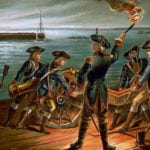 History
History  History
History  Health
Health 10 Everyday Activities That Secretly Alter Consciousness
 History
History Top 10 Historical Disasters Caused by Someone Calling in Sick
 Animals
Animals 10 New Shark Secrets That Recently Dropped
 Movies and TV
Movies and TV 10 Forgotten Realities of Early Live Television Broadcasts
 Technology
Technology 10 Stopgap Technologies That Became Industry Standards
 Weird Stuff
Weird Stuff 10 Wild Facts About Taxidermy That You Probably Didn’t Know
 Travel
Travel 10 Beautiful Travel Destinations (That Will Kill You)
 Miscellaneous
Miscellaneous 10 Modern Marriage Rituals Born from Corporate Branding
 Weird Stuff
Weird Stuff Ten Bizarre Visions of 2026 from Fiction
 History
History 10 “Modern” Problems with Surprising Historical Analogs
 Health
Health 10 Everyday Activities That Secretly Alter Consciousness
 History
History Top 10 Historical Disasters Caused by Someone Calling in Sick
Who's Behind Listverse?

Jamie Frater
Head Editor
Jamie founded Listverse due to an insatiable desire to share fascinating, obscure, and bizarre facts. He has been a guest speaker on numerous national radio and television stations and is a five time published author.
More About Us Animals
Animals 10 New Shark Secrets That Recently Dropped
 Movies and TV
Movies and TV 10 Forgotten Realities of Early Live Television Broadcasts
 Technology
Technology 10 Stopgap Technologies That Became Industry Standards
 Weird Stuff
Weird Stuff 10 Wild Facts About Taxidermy That You Probably Didn’t Know
 Travel
Travel 10 Beautiful Travel Destinations (That Will Kill You)
 Miscellaneous
Miscellaneous 10 Modern Marriage Rituals Born from Corporate Branding
 Weird Stuff
Weird Stuff Ten Bizarre Visions of 2026 from Fiction
10 Ridiculously Fabulous Displays Of Wealth In History
It’s often said that money isn’t everything, but it sure does make life more fun. Here are 10 of the most over-the-top and yet oddly impressive ways people threw away their wealth.
10E. Berry Wall And His Leather Boots
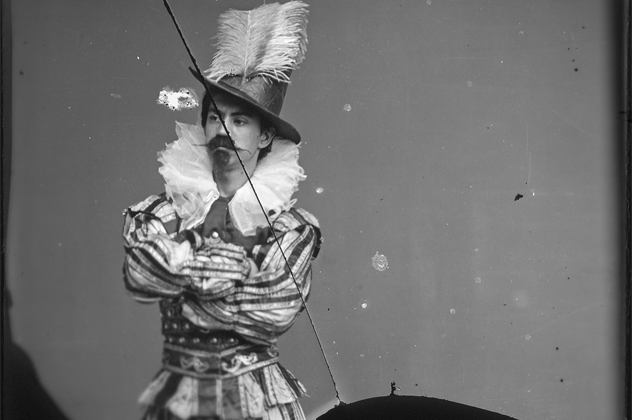
Evander Berry Wall was a fashion icon who strolled the streets of New York toward the latter quarter of the 19th century. Born in 1860, Wall became a millionaire by the time he hit 18 and a multimillionaire by the time he reached 22, when he inherited a million dollars from his father and grandfather respectively.
From the second he inherited the money, Wall began spending it all on clothes, famously buying 5,000 neckties and 300 pairs of gloves. Wall also supposedly refused to ever drink anything but champagne, was the first man in America to wear a tuxedo, and once changed his outfit 40 times in a single morning for a bet.
Wall’s incredible vanity soon attracted the attention of a reporter named Blakely Hall, who wrote incredibly popular newspaper articles about Wall’s various outfits. These articles aroused people’s curiosity and massaged Wall’s already tremendous ego, but they also drew the attention of other snappy dressers. Eventually, a gentleman’s bet was arranged between Wall and an actor named Robert C. Hilliard to see who could pull off the most ridiculous outfit.
After a few weeks of turning up to various parties wearing things like “checked suits” and “entirely tweed outfits,” Wall’s standout moment came when he walked into a bar in the middle of a blizzard “clad in gleaming boots of black patent leather that went to his hips.”
Discover more flamboyantly wealthy people from history in The Very Rich: A History of Wealth at Amazon.com!
9Caligula Literally Swam In Gold
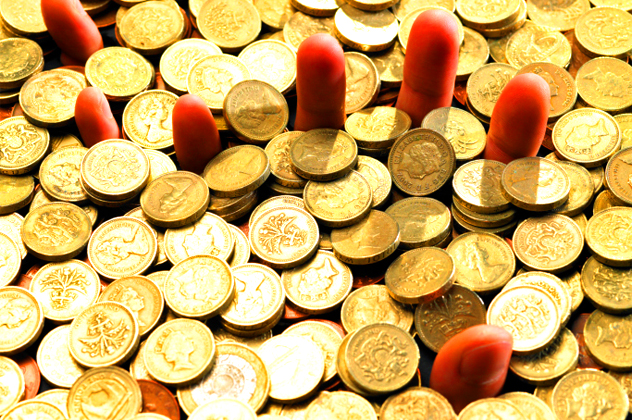
We’ve discussed before how Emperor Caligula was an awful human being, and nothing we’re about to mention here will change that. That said, the man sure knew how to spend his money. As you’re probably aware, Caligula was fond of wild sex parties, but what’s less well known is that Caligula had a fetish for gold that bordered on the absurd.
This culminated in Caligula forcing his servants to pile up his impressive gold reserves purely so he could roll around in the gold because he enjoyed the feel of it on his skin. Caligula also reportedly fed his favorite horse oats mixed with gold, and he’d often serve his guests loaves of bread made of solid gold just to show off how rich he was. When he wasn’t rolling around in gold, Caligula would sometimes throw it on the floor just so that he could walk across it. He also had little to no regard for the fashion sense of the day and it wasn’t unusual to see the Emperor walk around wearing women’s clothes covered in jewels.
It’s reported that in the few years he reined, Caligula spent over 27 million gold pieces doing whatever he pleased.
8Edward Hughes Ball Hughes And His Gambling Problem
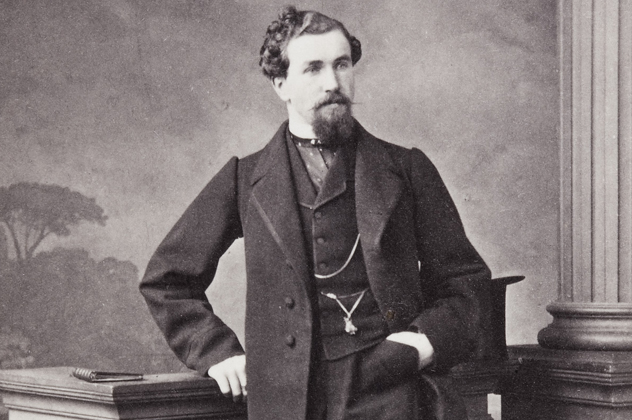
Edward Hughes Ball Hughes was an early 19th-century dandy who began making a name for himself in upper social circles when he inherited £40,000 per year in 1819 at the age of 23.
Using his newfound wealth, Hughes began styling himself as a gentlemen by buying as many fancy clothes as he could afford and cramming them all inside a giant house. Even when he was enjoying the pursuits of the leisure class, like hunting, Hughes was rarely seen without “an army of servants carrying guns, wine, and food behind him.”
Unfortunately for him, Hughes’s favorite pastime was gambling. Hughes would reportedly bet thousands of pounds on something as simple as the flip of a coin and wouldn’t bat an eyelid when he lost. He was such a prolific loser that the locals published a pamphlet in 1824 purely to warn the young man about the company he was keeping and how much they were taking advantage of his wealth and naivety, warning him that he’d lose his entire fortune if he wasn’t careful.
In response, Hughes went right ahead and lost £45,000 in a single evening. In today’s money, that was the equivalent of Hughes losing £37 million. After that night, Hughes fled to Paris to avoid paying his debts and lived the rest of his days in quiet comfort.
7The 5th Marquis Of Anglesey And His Dressing Gowns
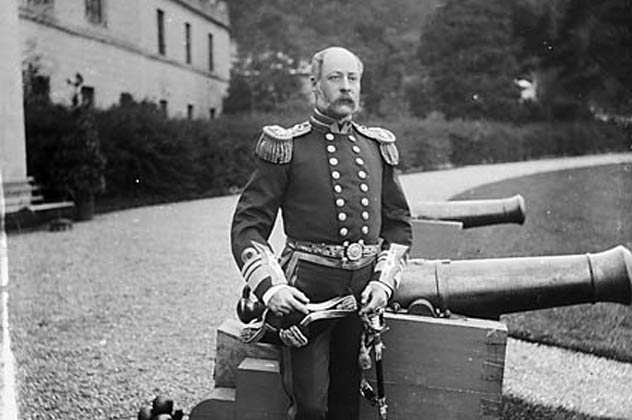
Henry Cyril Paget, aka the 5th Marquis of Anglesey, was a legendary figure in England in the late 19th century and early 20th century who was known throughout the country for his insane spending habits and sense of dress. Like the celebrities of today, Paget would strut around town with a toy poodle tucked beneath his arm. Unlike the celebrities of today, Paget would do so while wearing a diamond tiara, just because.
In his life, Paget spent his family’s entire fortune and then some. His inheritance gave him £110,000 a year (about £8 million today). Most of his family’s money was spent on clothes and Paget was famous for wearing jewel-encrusted costumes that he’d wear once and then never touch again. As an example of how stupidly opulent Paget’s lifestyle was, when his bills finally caught up with him and he was forced to sell all of his belonging to settle the books, they found 100 unworn silk dressing gowns in his wardrobe. Paget’s most ridiculous display of wealth came in the form of his fleet of private vehicles, all of which had been modified to spray perfume out of their exhaust pipes.
6Gordon Bennett And His Cow Yacht
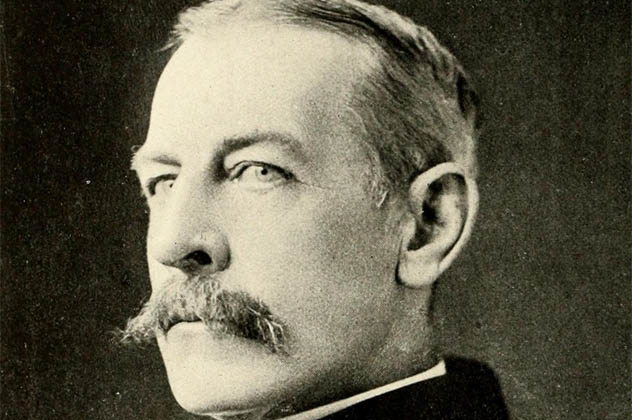
James Gordon Bennett Jr. was an early 19th-century playboy and the son of James Gordon Bennett Sr., the founder of the New York Herald. Coming from such gilded stock, Bennett Jr. was born with a silver spoon in his mouth. Whereas his father was a hardworking, well-respected businessman, Bennett Jr. was only really interested in spending money.
According to varying sources, Bennett spent around $40 million in his lifetime, and the stories of his opulence read like something Bruce Wayne would do to try and convince people he wasn’t Batman.
For example, Bennett once reportedly threw a roll of money into a fire just because he couldn’t fit it into his pocket. When a frantic guest tried to pull it back out, he yelled at them because the fire was where he wanted the money to be. Another time, Bennett bought an entire restaurant just because someone was sitting in his seat.
Bennett’s most extravagant purchase was his own personal yacht, the Lysistrata, which Bennett commissioned to be built when he realized that the other yacht he owned just wasn’t cutting the mustard. What made this yacht so extravagant? Well, Bennett had a room on the yacht reserved for a cow just so he could have fresh butter every morning. As if that wasn’t unbelievable enough, to make sure the cow was always happy, Bennett made sure that “an electric fan blew gentle breezes over the cow in tropical climes and the finest of all-wool blankets warmed it in arctic water.”
5Howard Hughes And The Silver Slipper
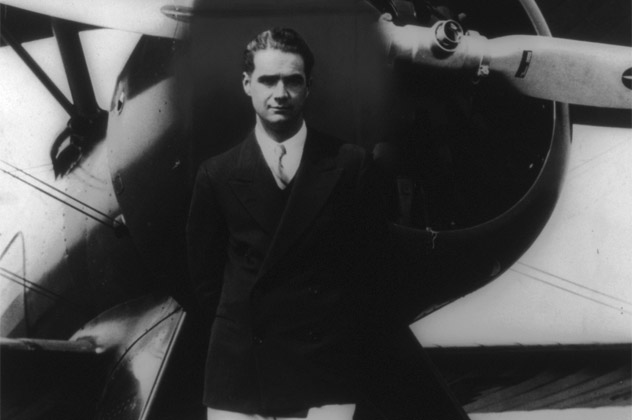
When Howard Hughes was 19, his father died. A former oil prospector and inventor of a drill bit that revolutionized oil drilling, he left young Hughes in charge of a vast and profitable business empire. Upon learning of his father’s death, Hughes had a court declare him a legal adult, used his newfound wealth to buy every share of his father’s company, and then placed it in the hands of someone with more business sense than himself.
Not content to just let someone else make money for him, Hughes went right ahead and began producing wildly popular movies in the ’20s and ’30s. When World War II broke out, Hughes bought himself an airline, and when it ended, he bought a film studio. By the early ’60s, Hughes was one of the richest people on Earth, with a reported fortune reaching into the billions.
Though he’d lived a life of extravagance as a young man, Hughes’s most ostentatious acts of spending came when his health began to decline in the mid-1960s. According to people close to Hughes, in 1966 he calmly explained to one of his aides that he wanted to be “the largest single property owner in the gambling capital [Las Vegas].”
The very next day, Hughes flew to Vegas in his pajamas and rented a room in the Desert Inn. When the owner asked Hughes to leave, he bought the hotel and told him to get lost. Hughes then went right ahead and bought half a dozen other casinos, including the Silver Slipper, which he bought just because he wanted to move the sign.
One night, when Hughes was sitting in his room, he flicked on the TV and found that there was nothing on—so he bought a local television studio just to make them show movies at night so he wouldn’t get bored. Of course, Hughes was a film producer who owned a chain of theaters—he could have easily had a projector put into his room or something—but he chose instead to spend millions of dollars buying a TV station just so he could watch his favorite movies.
Read more about the scintillating life of Howard Hughes in Howard Hughes: His Life and Madness at Amazon.com!
4Marie Antoinette And Her Boat Hair

Marie Antoinette led a life that was marred by controversy, and throughout the latter half of her life she was repeatedly criticized by the public at large. A lot of this criticism was both unfounded and largely unfair, the most famous example being the infamous quote “let them eat cake,” supposedly uttered by Antoinette upon hearing that people were starving due to a lack of bread. The quote was almost certainly wrongfully attributed to Antoinette in an attempt to besmirch her good name.
All that said, Antoinette did indeed live a life of opulent luxury the likes of which the average person couldn’t possibly imagine. For example, Antoinette would regularly give away her tailor-made dresses and gowns after only a single wearing, which probably explains why Antoinette ordered 300 of them per year.
Where Antoinette’s opulence really shone through was in how she styled her hair. Although Antoinette never said, “let them eat cake,” she absolutely did cover her iconic pouf hairstyle in flour—during a flour shortage—and she once reportedly turned up to a party with an entire miniature boat in her hair.
3Kim Jong Il And His Lobsters

During his time as the Supreme Leader of North Korea, Kim Jong Il took full advantage of his position of absolute power and used it to indulge his every whim and passing fancy. While his people starved and died by the thousands, the Supreme Leader was shipping thousands of bottles of cognac to fill his private wine cellar, and he reportedly fed his dogs better than his staff. According to a Japanese sushi chef who used to cook for Kim Jong Il, every grain of rice was inspected by hand before it was cooked and served to him. “Defective” grains were thrown out.
Perhaps the ultimate example of the Dear Leader’s grandiose lifestyle comes from a testimony by a Russian emissary, Konstantin Pulikovsky, who reported that while he traveled with the Dear Leader on his private train, he “had live lobsters airlifted to the train every day which he ate with silver chopsticks.”
2Cleopatra And The Pearl
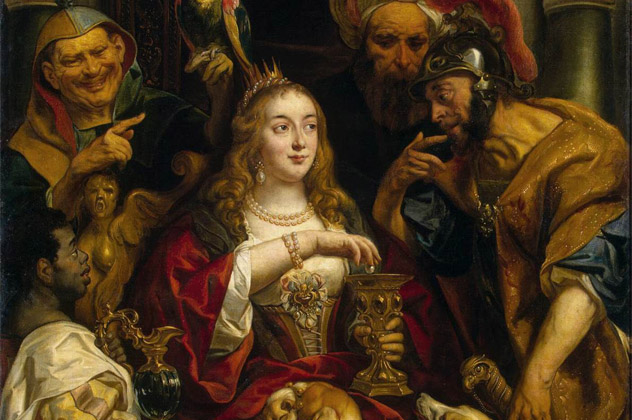
The famously beautiful Cleopatra was one of the last pharaohs of ancient Egypt, and as such she enjoyed a position of tremendous power and wealth. As one of the most powerful women in all of history, Cleopatra had the entire wealth of Egypt to play around with. She’s considered by some to be the 22nd richest person in all of history, with an estimated personal net worth of $95 billion. Although the exact figure will likely never be known, suffice to say that Cleopatra had enough money to live a pretty good life.
One of the more curious treasures that Cleopatra supposedly owned was the largest set of pearls on Earth. We say “supposedly” because they no longer exist—apparently, Cleopatra drank them.
As explained by Pliny the Elder in his book Natural History, Cleopatra put one of the largest pearls mankind has ever known into a glass of vinegar purely so she could dissolve it and drink it for a bet. The queen supposedly created the costly cocktail when her lover Mark Antony bet her that she couldn’t spend a “small fortune” on a single meal. In response, Cleopatra removed one of her own earrings—made from a giant pearl given to her by an Eastern king—and dissolved it in a glass of vinegar before promptly downing the mixture in one go.
According to Lucius Munatius Plancus, the man who oversaw the wager, the pearl was worth the equivalent of “1,764 pounds of gold” and it was only by his intervention that Cleopatra’s other earring survived. If this guy hadn’t have stepped in, Cleopatra would have swallowed the equivalent of over 3,000 pounds of gold, all for a silly bet. It was believed for years that the story was a myth, but one researcher proved that vinegar would in fact dissolve a pearl within about 10 minutes if the pearl was crushed first.
1Pablo Escobar’s Whole Life
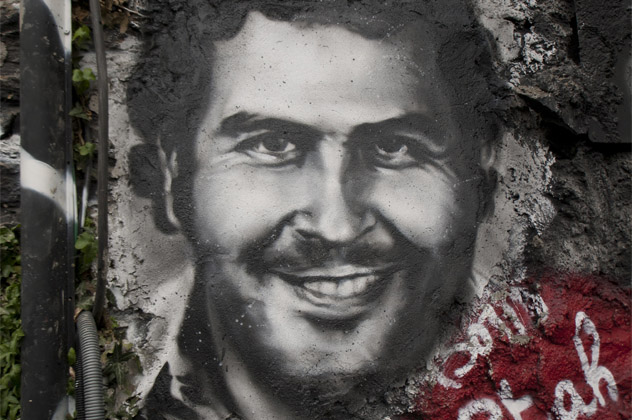
When Pablo Escobar’s cocaine empire was at its peak, the Medellin cartel reportedly spent upwards of $2,500 on rubber bands just to hold all the piles of money together. According to people close to the infamous drug baron, literal “truckloads of cash” were a common sight, and when he ran out of room to store it all, he’d pay people to store it in the walls of their homes. According to the book An Economic History of Organized Crime, there were hundreds of these so-called caletas in the area surrounding Escobar’s home, each containing upwards of $5 million apiece.
Even when he was on the run from the police, Escobar continued to astound the public with his lavish spending. According to Escobar’s own son, while he was on the run he once burned millions of American dollars just to stay warm.
However, truly the most awesome and inconceivable act of wanton spending came when Escobar offered to pay off the entire national debt of Columbia—all $10 billion worth—out of his own pocket if they let him off. It didn’t work.
You can find more of Karl’s work on Man Cave Daily or by following him on Twitter and Tumblr .








